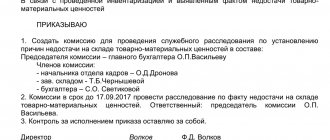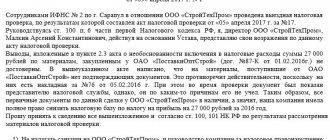The legislative framework
- Law on protecting the health of citizens of November 21, 2011 No. 323-FZ;
- Order of the Ministry of Health and Social Development of Russia on mandatory medical examinations dated April 12, 2011 No. 302n;
- Labor Code of the Russian Federation.
The Labor Code regulates that in cases provided for by law:
- the employer must organize mandatory medical examinations (Article 212 of the Labor Code of the Russian Federation),
- the employer does not have the right to allow citizens to perform their job duties who have not undergone a medical examination (Article 212 of the Labor Code of the Russian Federation),
- employees are required to undergo preliminary and periodic medical examinations (Articles 213, 214 of the Labor Code of the Russian Federation).
Law No. 302n specifies the procedure for conducting medical examinations and a list of work during which personnel must undergo regular examinations. Employees working in the following areas must undergo mandatory inspections:
- education;
- healthcare;
- public catering;
- social sphere;
- food industry;
- construction;
- motor transport;
- home service, etc.
https://youtu.be/2nxL9iBBPBk
Legal requirements
The Labor Code of the Russian Federation, namely Article 212, states that the responsibility for conducting a medical examination of workers lies with the employer. That is, the medical examination must be carried out exclusively at the expense of the employing company. The same document (Article 213 and 348.3) also mentions those professions for whose representatives periodic examination is mandatory. This group includes:
- Persons working in hazardous and hazardous industries. The list of hazardous work, as well as types of activities harmful to health, is established by the Order of the Ministry of Health and Social Development.
- Employees of food enterprises.
- Medical workers.
- Employees of educational institutions.
- Drivers.
- People working in industries related to machinery.
- Other specialties included in the list established by law.
If an employee fails to comply with this requirement, the employee who has not undergone a periodic medical examination, of course, does not face dismissal. But this will give the employer a reason to record a disciplinary violation. And it can already lead to the cancellation of the employment contract.
In addition, there are legislative provisions on passing a medical examination for persons who are just applying for a job. Issuing referrals for examination is the responsibility of the employer. It is mandatory to undergo a medical examination:
- Minor applicants (under 18 years of age).
- Persons seeking employment in the regions of the Far North (Article 324 of the Labor Code of the Russian Federation).
- Shift workers (Article 298 of the Labor Code of the Russian Federation).
- Athletes.
- Workers whose activities will be related to driving vehicles (air, water or land).
- Persons engaged in underground work (Article 330.3 of the Labor Code of the Russian Federation).
- To the security guards.
- Employees who spend more than half of their working time at a computer monitor (clause 13.3 of SANPIN 2.2.2/2.4.1340−03).
Medical opinions can be issued only by those medical institutions and organizations that have a license to carry out this activity.
Responsibility for non-compliance with legal requirements
For each participant in the relationship for organizing periodic medical examinations for violating the procedure established by law, the following penalties are provided:
- the medical institution bears administrative and legal responsibility for the quality of the medical examination and the validity of the conclusions;
- the employee is responsible for timely attendance at the examination;
- the employer will have to be responsible for the lack of proper organization of medical examinations and for allowing persons who have not passed the examination to perform work duties.
Punishments for failure to undergo a medical examination are regulated by the Labor Code of the Russian Federation, the Criminal Code of the Russian Federation and the Code of Administrative Offenses of the Russian Federation. Timely completion of routine medical examinations will help employers avoid penalties and ensure that the health status of all employees meets the requirements.
Suspension and dismissal
Speaking about suspension from work, one cannot fail to mention dismissal due to medical reasons.
In addition to disciplinary problems, when, following a medical suspension. indications should result in dismissal (for example, if an employee deliberately avoids medical examinations or comes to work in a state of intoxication, recorded by responsible persons), they can be fired under Art. 73 Labor Code of the Russian Federation.
https://youtu.be/Jxa2VKEBNoM
If an employee refuses a medical transfer. testimony and the period of this transfer is long - over 4 months, permanent, we are no longer talking about removal from work, but about dismissal. An employer can do the same if he does not have a suitable job for a citizen for the specified period.
For a completely incompetent citizen, only dismissal is applied on the basis of a certificate from a medical commission. The document must contain a direct indication of incapacity, only then the dismissal is considered legal (Article 83-5 of the Labor Code of the Russian Federation).
Briefly
- Suspension from work is a temporary procedure. After eliminating the medical reasons that impede the performance of work duties, the employee is allowed to enter the workplace.
- If according to honey According to the testimony, the employee should be transferred to “light work”, but this is not possible, then for 4 months he may not work, as if suspended by the administration, and maintaining his position. Salaries are not accrued upon suspension from work, except in cases where a citizen missed a medical examination due to circumstances beyond his control. Then he will be paid for this time as idle time - partly from the average earnings or tariff (salary).
- The order for suspension for medical reasons contains an indication of the basis document and an order from the accounting department to stop accruing wages. The employee and the accountant get acquainted with its text against signature.
Administrative responsibility of employers
Fines for failure to undergo periodic medical examinations by labor personnel are determined by Part 3 of Art. 5.27.1 Code of Administrative Offenses of the Russian Federation. So, in accordance with this article, the punishment for employers will be as follows:
- for officials – 15-25 thousand rubles;
- for individual entrepreneurs – 15-25 thousand rubles;
- for legal entities – 110-130 thousand rubles.
For repeated violations, the perpetrators will be punished under Part 5 of Art. 5.27.1 Code of Administrative Offenses of the Russian Federation. The fines will be higher:
- for organizations – 100-200 thousand rubles;
- for individual entrepreneurs and executives – 30-40 thousand rubles.
Penalties are not the only punishment for repeated violations; the following sanctions may also be applied:
- the work of individual entrepreneurs and companies may be suspended for up to 90 days;
- officials may be disqualified for a period of 1 to 3 years.
Amount of fine
The fine for the absence of a medical book on an employee is mandatory; its amount depends on the severity of the offense committed:
- administrative penalties in relation to employees at the rate of 1 to 5 minimum wages;
- the official who made the mistake is obliged to pay from 5 to 10 minimum wages;
- the organization may suffer penalties from 100 to 200 minimum wages, as well as a freeze on labor activity for a period of ninety days;
- an entrepreneur who has not opened an account usually pays from 5 to 10 minimum wages. A ban on continuing activities for a period of ninety days is also possible.
If there are relapses, penalties can be increased many times and imposed on legal entities and individuals.
https://youtu.be/KrB_RfXW-Qo
Criminal liability
Criminal liability for non-compliance with labor protection rules is established by Art. 143 of the Criminal Code of the Russian Federation. This article will be applied to the employer if he deliberately allows persons to work who have not undergone a medical examination or have certain medical contraindications, and as a result of such actions serious harm to the health of one or more people will be caused. The death of one or more people as a result of negligence in complying with the requirements of current legislation will also entail criminal liability.
In accordance with Art. 143 of the Criminal Code of the Russian Federation, offenders will face the following punishments:
- fine (for failure to undergo periodic medical examination of hired personnel, among other things) – up to 400 thousand rubles;
- compulsory work (180-240 hours);
- repair work (up to 2 years);
- forced labor (up to 1 year);
- imprisonment (up to 1 year).
Liability in case of violation of instructions
The obligation to comply with this requirement lies with both the employer and the employee. In case of violation, the first ones face a fine, and the second ones face a disciplinary reprimand, in which all regulations specified in Article 193 of the Labor Code of the Russian Federation must be observed. If after the first punishment the employee still does not pass the medical examination, then he may be dismissed from work (grounds - Article 81, paragraph 5, part 1 of the Labor Code of the Russian Federation). That is, such a measure for him will only be a matter of time.
Sanctions applied to the employer
It is the responsibility of the head of the company not to allow those persons who have not passed a medical examination to perform their official duties. The basis is Article 212, paragraph 12 of the Labor Code of the Russian Federation. If a person is just getting hired by a company, then the employer does not have the opportunity to hire this employee. That is, the applicant will be denied the vacancy.
If an employee who has not passed the examination is already on staff, the employer is obliged to remove him from professional duties (Article 76 of the Labor Code of Russia). The same must be done in the case where the applicant (employee) has medical contraindications to work.
If this rule is not observed, the employer may be subject to administrative punishment in the form of a fine. Grounds - part 3, article 5.27.1 of the Code of Administrative Offenses of Russia. The amount of the penalty will be:
- For private entrepreneurs - 15-25 thousand rubles. In case of repeated violation, the amount will increase many times and become equal to 30-40 thousand rubles (Part 5, Article 5.27.1 of the Code of Administrative Offenses of the Russian Federation).
- Officials may be charged 15-20 thousand rubles or 30-40 thousand rubles if the order was violated a second time.
- For organizations, the amount of the fine will range from 110-130 thousand rubles to 200 thousand rubles (repeated fine).
Alternatively, a penalty may be imposed in the form of disqualification for a period of 1-3 years (officials) or suspension of activities for 3 months (private entrepreneurs and organizations).
In addition, for failure to comply with labor safety rules, criminal liability may be applied to the management of the company under Article 143 of the Criminal Code of the Russian Federation. Then the punishment will be like this:
- A fine from 5 to 400 thousand rubles is collected in cash or calculated as the income of the convicted person for a period of 2 to 18 months.
- Forced labor of varying durations.
- Deprivation of liberty.
- Other measures established by law.
Therefore, the employer will strictly ensure that all company personnel comply with the requirement to undergo a mandatory medical examination.
Removing an employee from work
If a subordinate refuses to undergo a mandatory medical examination, the employer has every right to remove this person from work. During the period of suspension, the employee will not be paid. The basis is Article 76, Part 3 of the Labor Code of Russia. For such a measure of influence on the violator to be legal, the employer must have facts confirming this circumstance. What will be taken into account:
- An explanatory note stating that the medical examination was not passed.
- Refusal to undergo a medical examination, written personally by the employee.
- Sick leave covering the dates allocated for the examination.
- Information received from a medical institution confirming a person’s failure to appear for a medical examination.
- Certificate of refusal to undergo a medical examination (written by the employer).
After these documents (one of them) are submitted, the employer issues an order to remove the employee from performing work. The order states the following:
- FULL NAME. subordinate, his position.
- The reason that served as the basis for drawing up the order indicating references to legislation (Article 76, part 1 of the Labor Code of Russia).
- The period for which the document will be valid. In some organizations, where management is more loyal, the period of suspension may be indicated not by a specific date, but by an event (passing an inspection).
- Circumstances (if any) that will confirm that the specialist is not at fault for not doing the medical examination on time.
- Conditions of remuneration for the period of suspension (in the event that non-compliance with the order was not the fault of the employee).
- List of documents confirming the fact of violation by the employee of labor protection requirements.
- Signatures of the parties: employer and employee.
If after this the employee ignores management’s claims, the employer may reprimand him.
Dismissal of a subordinate
In the event that the manager nevertheless decides to impose disciplinary punishment on the employee for not passing the medical examination at work on time, dismissal may become a reality. This is especially true for those specialists who have already “distinguished themselves” in terms of violation of labor discipline:
- The employee has already been subject to disciplinary action within a year (Article 194, Part 1 of the Labor Code of Russia).
- The reason why the employee did not do the medical examination on time was not valid.
If all these elements are present, the employer has the right to cancel the employment agreement with the subordinate under Article 81, Part 1, Clause 5 of the Labor Code of the Russian Federation. The reason that will be indicated in the dismissal order will be the employee’s repeated failure to perform his professional functions without good reason.
What should an employer do if an employee does not pass a medical examination?
If a hired employee who is required to undergo medical examinations fails to undergo the examination due to his own fault, the employer has the right to remove him from work. Basis – art. 76 Labor Code of the Russian Federation. No wages will be accrued in this case. Also, a disciplinary sanction can be applied to the violator in compliance with the procedures specified in Art. 193 Labor Code of the Russian Federation.
If, after all the measures taken, an individual still does not pass the medical examination, the employer can dismiss him (grounds: clause 5, part 1, article 81 of the Labor Code of the Russian Federation). Fines are not applied to employers in such cases.
There are situations when an employee was unable to undergo a medical examination in a timely manner for good reasons or due to circumstances beyond his control. Then, for the entire period of forced suspension, he will be paid a salary as for downtime.
The Russian Ministry of Health has changed the rules for medical examinations of workers
On January 7, 2020, Order of the Ministry of Health of Russia dated December 13, 2019 N 1032n came into force, which introduced changes to the procedure for conducting mandatory medical examinations of workers upon entering work and working in hazardous working conditions.
They tried to change the document a huge number of times, but the projects never turned into approved orders. It is all the more interesting to see what the department, which took so long to approve the amendments, changed there.
The list of harmful and dangerous production factors has not changed. In the list of works, the position of a flight attendant was replaced by the position of an aircraft flight attendant, and an old typo was corrected - a reference to a non-existent subclause 28. The lists of mandatory tests and inspections were moved from the notes to a self-sufficient paragraph of the document.
All other changes concern the procedure for conducting medical examinations.
1. The main innovation is that when conducting a preliminary or periodic inspection, (no later than one year) inspections can be taken into account
— preliminary or periodic inspection,
- clinical examination,
— other medical examinations.
Thus, employers have the opportunity to significantly reduce the cost of medical examination if employees:
- will undergo a medical examination or preventive medical examination at the clinic at the place of attachment and take an extract from their medical record for a new medical examination;
— part-time workers will undergo a medical examination at their main place of work and will take the results of the previous one for a new medical examination.
On the other hand, medical centers specializing in medical examinations are not interested in reducing their costs by crediting studies conducted elsewhere. In addition, in order to undergo a medical examination, the employee will first need to be given a paid day off.
And one more thing - clinics are not willing to give medical cards in hand, which can also make it difficult to undergo a medical examination with credit for previously completed tests. According to the new rules, a person applying for work has the right to provide the medical center not with the original card, but with an extract from the medical record with the results of the medical examination.
For medical centers specializing in medical examinations, the legislator reserved the right not to take into account the results of previously conducted examinations if a citizen is identified with symptoms and syndromes of diseases indicating the presence of medical indications for repeated examinations.
In addition, in order to clarify the diagnosis, medical centers are entitled to receive the necessary information about the employee’s health status using medical information systems from the clinic at the place of attachment.
2. The second important change is that the scope of medical examination for all examined workers has been expanded through questionnaires, calculating body mass index, measuring blood pressure, determining cardiovascular risk, and measuring intraocular pressure (the latter after 40 years). Such a change brings the medical examination at work closer to the clinical examination in the clinic and will obviously delay the time of completion of the medical examination, since it increases the workload on the therapist.
3. The third change is the abolition of the mandatory issuance of health passports , which were previously issued to employees. Now the employee is given an extract from the medical record, which reflects the conclusions of medical specialists, the results of laboratory and other tests, a conclusion based on the results of a periodic examination, as well as recommendations for prevention and further observation, treatment and medical rehabilitation. A copy of the extract, with the consent of the employee, is sent to the clinic at the place of attachment.
4. Fourth – paperwork for medical centers conducting medical examinations has been increased. The conclusion based on the results of the preliminary examination must now be drawn up in four copies (instead of two), based on the results of the periodic examination - in five copies, and sent to the clinic at the place of attachment of the citizen. The final act is drawn up in five copies and sent to the employer, the occupational pathology center of the constituent entity of the Russian Federation, the Federal Social Insurance Fund of Russia, and the territorial body of Rospotrebnadzor.
Additional reporting to the FSS of Russia has appeared - medical organizations that conducted periodic examinations provide information on the health status of employees, including the results of these examinations with the written consent of the employee to the FSS of Russia upon written request. To comply with this legal norm, the medical center will need to obtain the appropriate consent from the employee in advance and issue a copy of the conclusion for the FSS of Russia, or make sure that the employee signs a refusal to provide information to the FSS of Russia.
5. Medical examinations at occupational pathology centers once every five years, from July 1, 2020, will be carried out by workers with hazardous working conditions (subclasses 3.1-3.4, class 4) and workers with persistent consequences of industrial accidents. Workers who have a preliminary diagnosis of an occupational disease must be sent to occupational pathology centers within 1 month from the moment of suspicion of a connection between the disease and the profession. Specialists from the occupational pathology center will travel to remote settlements as part of mobile medical teams.
For legal assistance, you can contact medical lawyer Vadim Sergeevich Berezinsky in the professional community VKontakte https://vk.com/medicinskijyurist.
How and where to pay fines?
Details for paying fines must be provided by the body that holds the individual entrepreneur or legal entity accountable. In this case, it is the State Labor Inspectorate. Payment must be made through a bank so that you have documentary evidence on hand. If there are several fines, each of them must be paid separately. Receipts should be retained.
Organizations and individuals are given 60 calendar days to pay penalties. The countdown begins from the day the decision to impose a fine comes into force. Offenders are not required to send copies or original receipts to the authority that issued the order.
Who checks the availability and originality of the health record?
First of all, when employing an employee in a field of activity where medical records and medical examinations are required, the availability and compliance of documents must be checked by the employer. Since, it is he who is responsible for compliance with legal standards in the work process, as well as the admission of employees to perform their official duties.
At the same time, government bodies control the activities of organizations by:
- State Labor Inspectorate;
- Sanitary and epidemiological station;
- Prosecutor's Office;
It is these institutions that have the right to issue protocols for the absence of a medical record. In addition, not only the presence, but also the authenticity of medical books can be checked. In this case, the inspector will pay special attention to:
- Availability and originality of the seal;
- Watermarks, as well as security elements;
- Registration number.
It is worth noting that for the employee and the company that hired him, a fine for lack of a medical record will be the least possible punishment. The situation is much more serious when identifying counterfeit documents.
Procedure for dismissal from work
An employee who fails a medical examination may be suspended from work.
In this case, the employer is obliged to adhere to the following procedure for removing an employee from duties:
- Drawing up a document confirming that the employee does not have a medical examination mark;
- An order is issued according to which the employee is suspended from performing his duties;
- Registration of the order and familiarization of the employee with it;
- This period is formalized as a simple period with an entry in the time sheet;
- If the employee eliminates the violation, an order for admission is issued. The order must be registered;
- Familiarization of the employee with the submitted order.
Please note! To remove an employee from performing duties without violating the law, the manager must follow all of the above requirements. Otherwise, the suspended employee has the right to appeal the actions of management.
Types of liability for violation of labor protection requirements.
Should an employer pay for a medical examination? Read here.
How to file a complaint against your boss to higher management, read the link:









